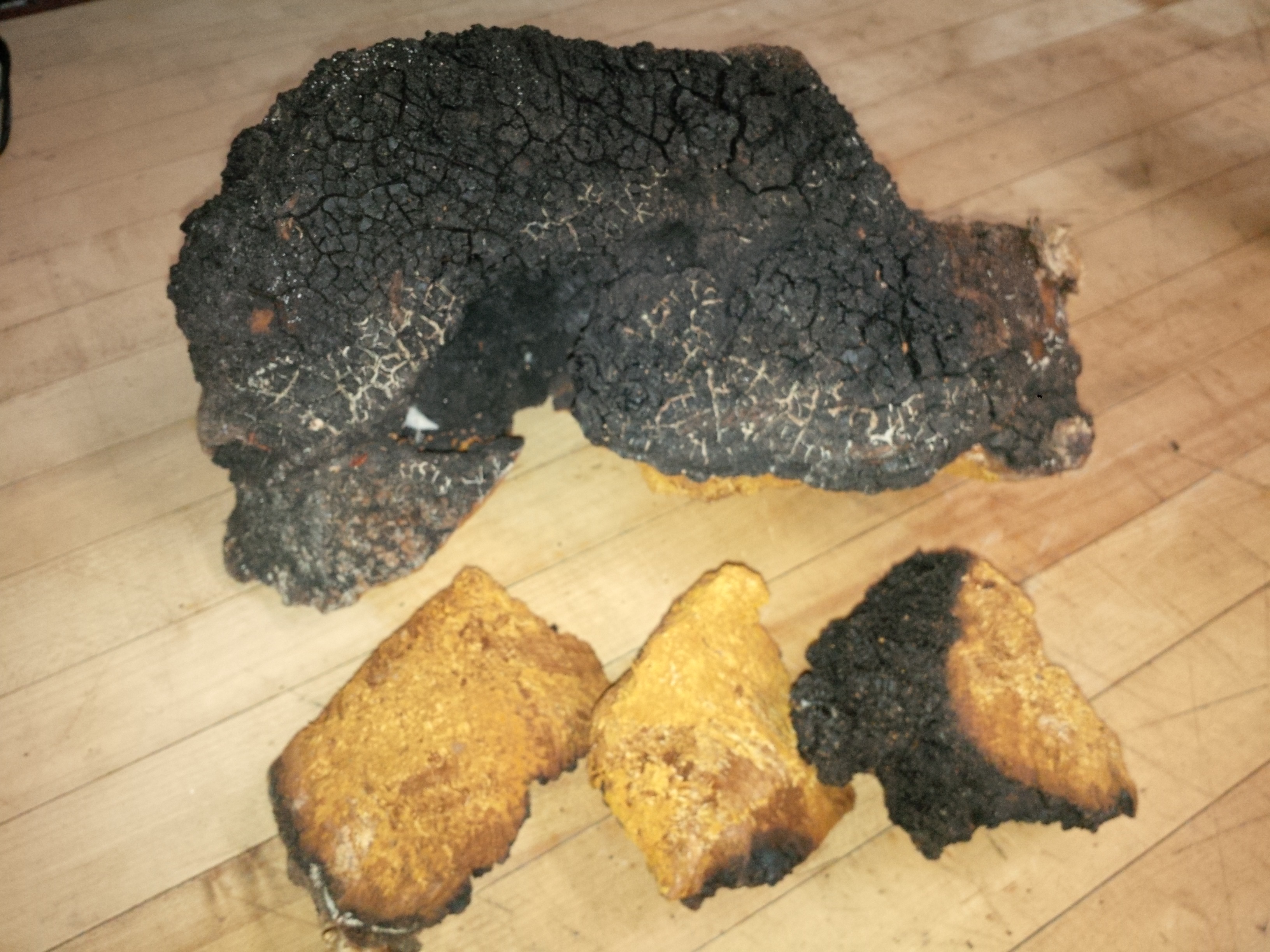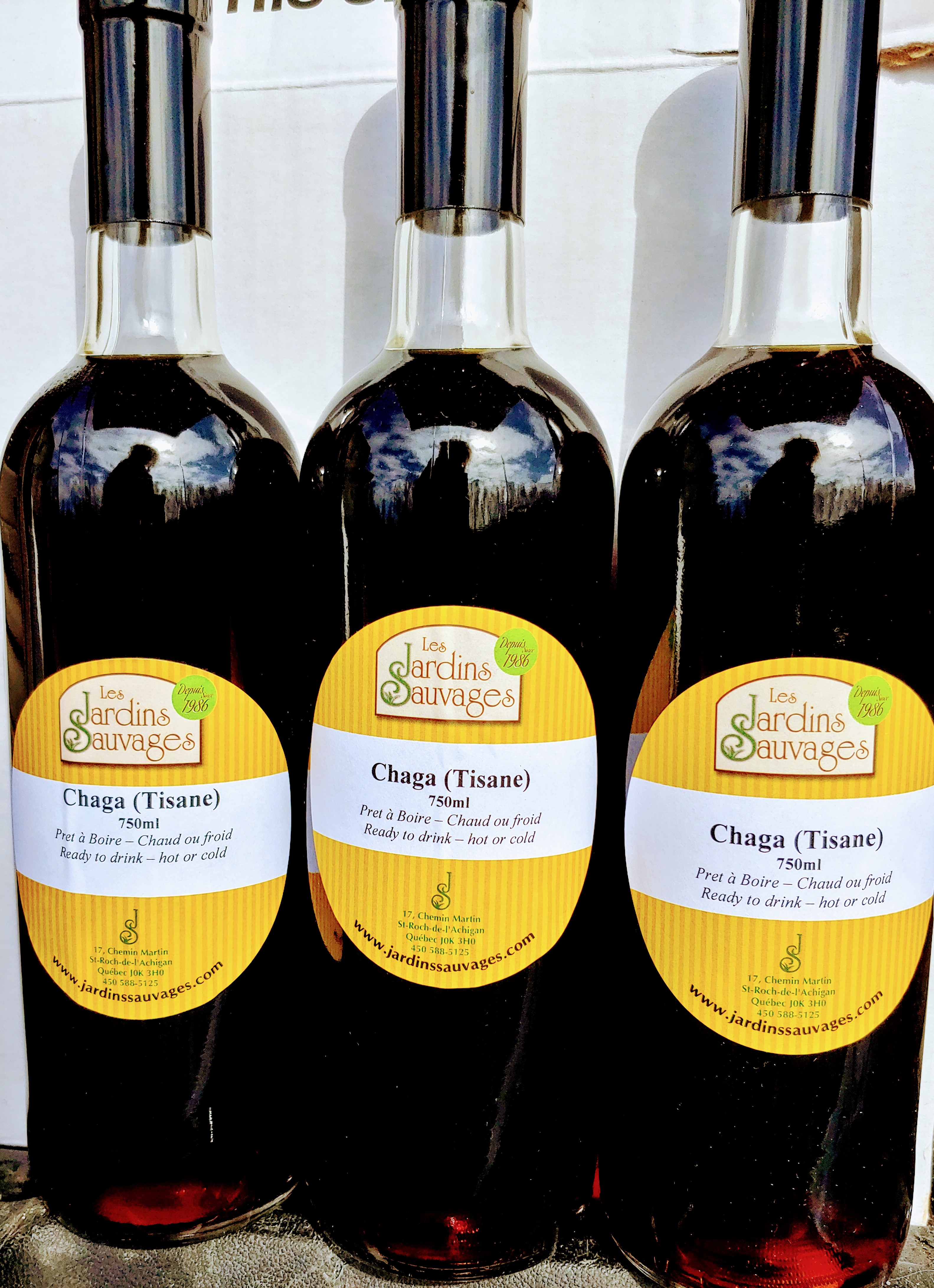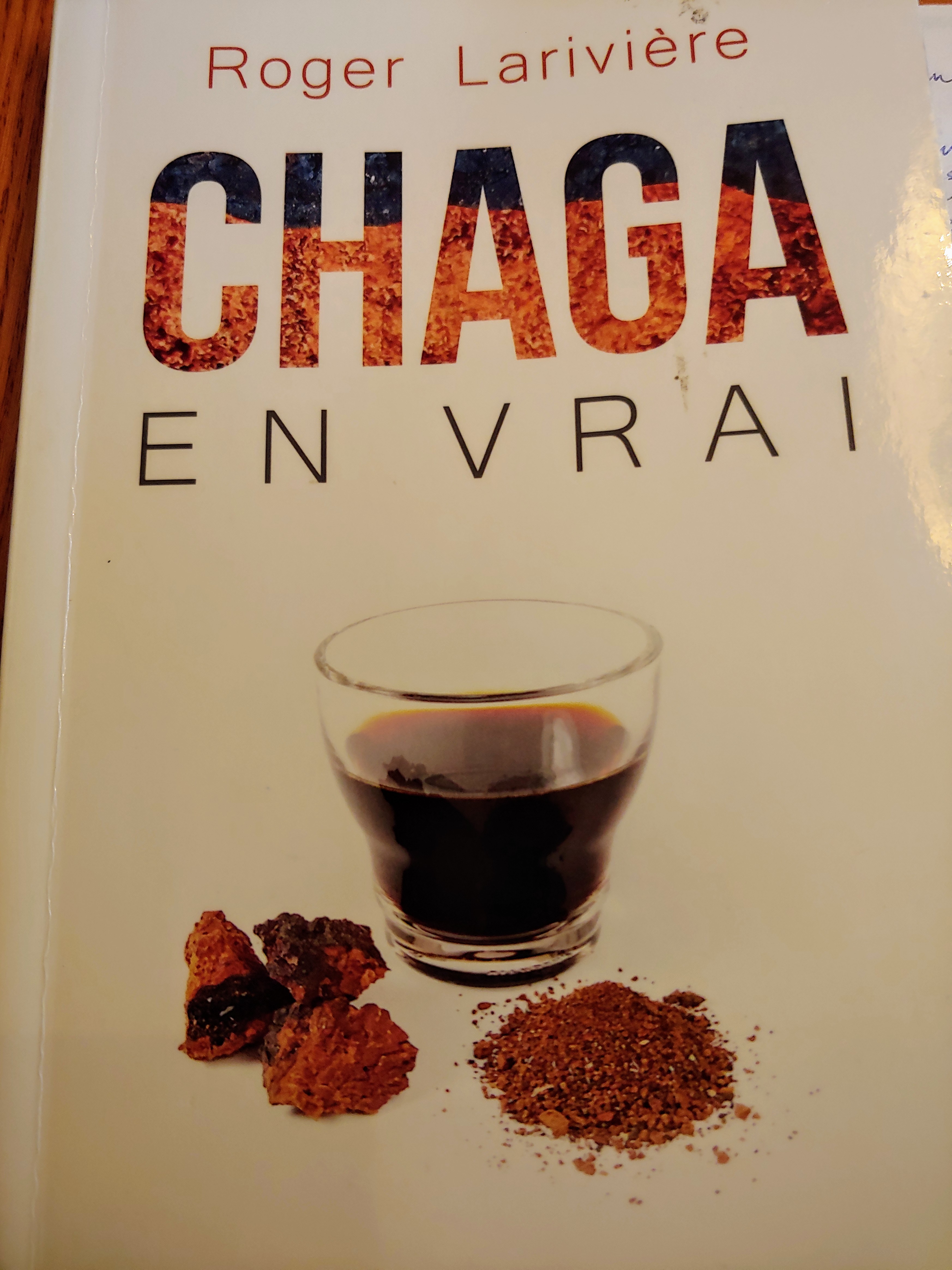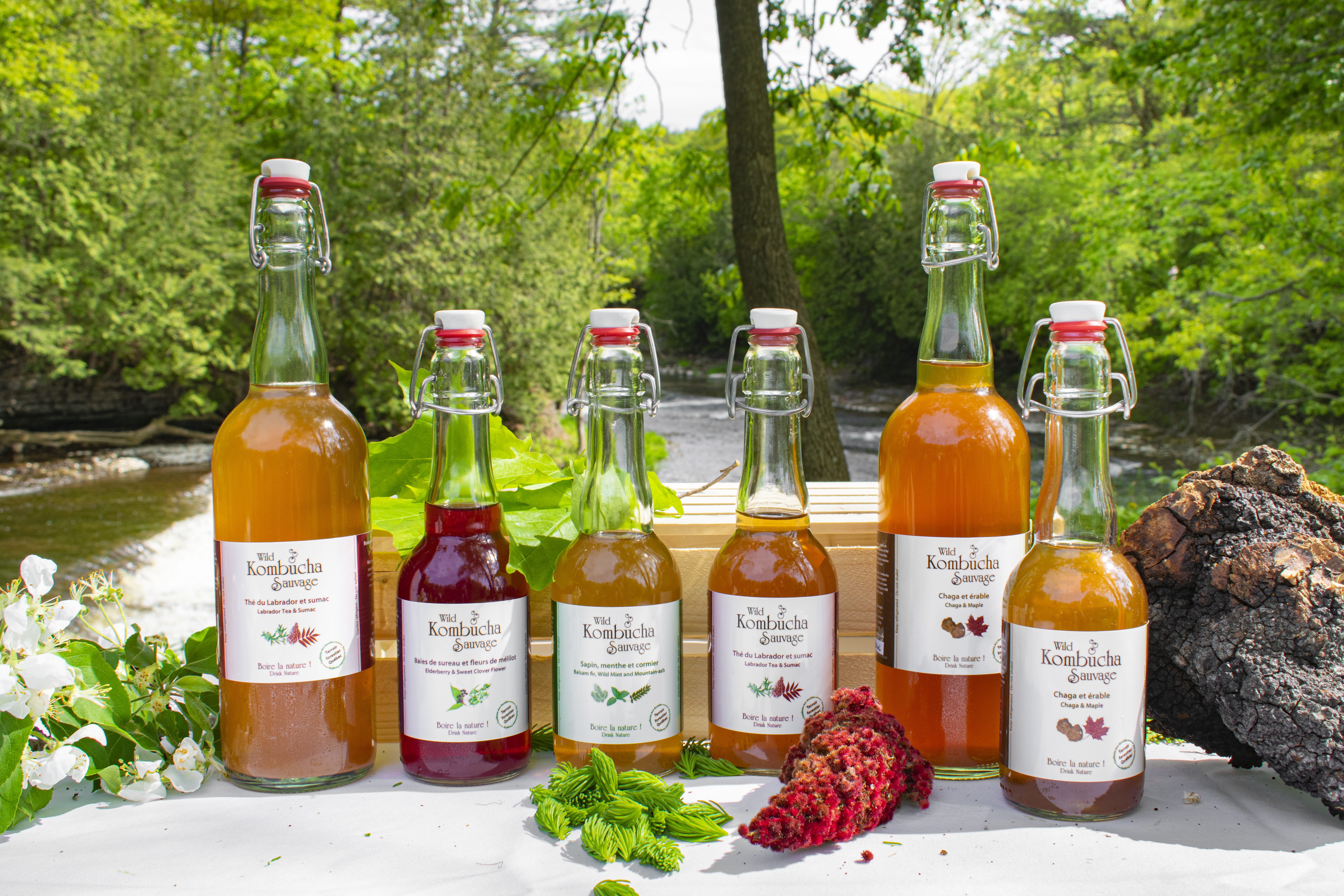Chaga Mushroom
Chaga
The local medicinal mushroom! There are many shrooms with medicinal properties, but let’s just say this one is having a moment.. Finally, after a few thousand years of use! It has recently exploded in popularity in the west thanks to the wide array of purported health benefits from boosting the immune system, stopping tumours, stomach trouble and allergies to anti-aging.. Inonotus Obliquus, it is a parasitic mushroom that feeds on mature birch trees in northern climes. It is hard as a rock, so not a mushroom to sauté up for dinner, more like a tonic, generally consumed as an infusion or in powder form...




I was skeptical initially, when it came onto our radar like 10 yrs ago. Due to my ‘science background’, I am typically slow to jump on that kind of bandwagon. I do appreciate nature’s alternative ‘medicine douce’ to be used in parallel with conventional practice, but am cautious about miracle claims, equally annoyed with greedy pharmaceutical companies as with loopy charlatans who wreck it for the rest of us..
And at Jardins Sauvages, we were always about gastronomy first, and we still are.
Francois does love the stuff though, he drinks it every day. I find it kind of boring, so I don’t much. Funnily, many think I’m a passionate advocate of nutrition and wellness, when I’ve only ever been a gourmand(e), more like a hedonist. However with ethics and respect for the environment. So the local, seasonal, wild thing just fits, because besides being wholesome and making sense allround - for the soil, community too.. , it often is what tastes best.
We like to eat and cook delicious things period, mostly from the field and forest, small local farms, etc. The healthy or medicinal aspect was always bonus. When we would do tastings to introduce our wild greens /mushrooms/products to people, often they would ask ‘what are the properties?’ François would smartly respond, ‘Le bonheur, c’est délicieux’, (Pleasure, it’s delicious), first and foremost, and then add any other info as secondary. Because its true that yes, stinging nettle, dandelion, many wild greens and mushrooms, wild herbs and spices have documented properties, but we don't shout about it, focusing on instructing people how to prepare them properly for a satisfying meal.
When Chaga and Mushroom teas started to become marginally trendy, we decided to add it to our offer. Mainly because it grows in Quebec, can be harvested sustainably, and people want it.
So naturally, I was inspired to make a Mushroom tisane that was tastier – with other healthy but more flavourful mushrooms in the mix.. It has its fans, but I’ve realized that these are two different clienteles with little overlap. Those who want Chaga don’t care much about taste, they are seeking the medicine.. Those who are eating or cooking want the fresh mushrooms or other products, they aren’t necessarily interested in mushroom tea, haha. Meanwhile I was kind of wasting my time fussing because I found it so important that my mushroom tea be delicious.
Chaga has a light, woodsy aroma. I can appreciate it as is, if it lacks pizzazz. With a little maple syrup, the flavour is enhanced. I see increased complexity and apple notes in my Chaga Kombucha or in recipes with some fat/milk or alcohol/acidity.
As for the medicinal properties....
If you Google it, you will see that there is dizzying amount of info out there, from sketchy to scientific. There is work being done here at the University of Quebec in Trois Rivìeres. I bought this book by Roger Lariviière for François and upon reading it, I find it pretty convincing. Having long known about the anecdotal evidence from cultures like Siberia to Scandinavia, China, Korea and Japan, where it has been used for millennia as the secret to longevity and to treat tuberculosis, ulcers, and all kinds of ailments, it is only in the last couple of decades that research is quickly progressing globally. Now, science is catching up, which is pretty interesting.
In the fifties, when cancer started to take hold of medical journals and diagnoses started increasing worldwide, a Russian doctor noticed that there were no cases in areas where they had a custom of drinking chaga tea daily (a practice adopted when too poor to have imported tea!)
It is a mild stimulant, increasing concentration, which is why some people like to drink it like tea/coffee. But its most winner attribute/what most people are after are - is the overall immune system boosting effects, and anti-inflammatory, anti-viral properties. It has been shown to stop tumours in early stages, and to diminish the secondary effects of chemotherapy/ radiotherapy. It is high in anti-oxidants and enzymes that slow aging of the skin, hair, organ cells and aiding skin conditions like psoriasis.
It supposedly helps stabilize cholesterol and glucose levels, good for heart and blood pressure, slows allergic reactions by breaking the cytokine response, aids digestive tract issues with its anti-ulcer properties as well as the cellulose and chitins providing fibre. Oh and its spermicidal. These bio-molecules are all proven to be there, how bio-available they are upon ingestion depends on how it is prepared and on your microbiome.
Health Canada has it listed as a ‘aliment naturel’ (natural food/ supplement) and recommends not exceeding 3.6g/day (dried), safe except caution for those with penicillin allergies, on anticoagulant medication, with organ transplants and heart tremors.
The medicinal value/potential health benefits depend on how it is extracted and consumed. The active ingredients are either fat soluble or water soluble, so to get lipids like erosterol, inotodiol and polysaccharides like betulin, BTA (anti-cancer/anti-viral), and A, E, D, K vitamins, you need an alcohol extraction like a tincture.
But there is still lots of good stuff in the aqueous tea like the betaglycans, most of the anti-oxidants, melanin and polyphenols, SOD enzyme (also anti-viral/anti-inflammatory, allergies, skin etc), and protein (animo acids), as well as the B vitamins (B2, B3, B5 ) and minerals (Si, Cu, Fe, Al, Mg Na, zn, K). What an impressive cocktail!
But no, it is not a quick fix for anything. Like many medicinal plants and ‘adaptogens’, it is only with regular consumption over time that reveals healing and protection. Like with a varied healthy diet! Which only tends to be sustainable if routine, comforting and/or delicious...
I now find myself taking a glass here and there, and introducing it in my cooking more.
I always used it in tisanes, coffee, and some infusions (sauces, desserts), but often half heartedly; it felt more like a gimmick, whereas now I pick it up to layer it in with intention, and a shot of extra love.
We sell it at the market (and our online store) in dried chunks or powder, and upon demand, we have added 750ml bottles of prepared Chaga beverage that keeps in the refrigerator for a month or so.
When making your own, you want to keep in mind: In order to benefit from the multiple properties, you want a slow and long extraction, but should be careful to not heat it higher than 80C. I heat it in water to cover and turn off, leave overnight (in the fridge ideally), and do that 3x.
You can add drink it hot or cold straight up or mix it into coffee, hot chocolate, tisanes, broth, soups and sauces, smoothies or just about any recipe savoury or sweet at the end.
References (1)
-
 Response: Lifeguard trainingAmerican Lifeguard Association
Response: Lifeguard trainingAmerican Lifeguard Association
Reader Comments